WHAT WE'RE WATCHING
Arnold — the Terminator’s biopic is more revealing than it means to be
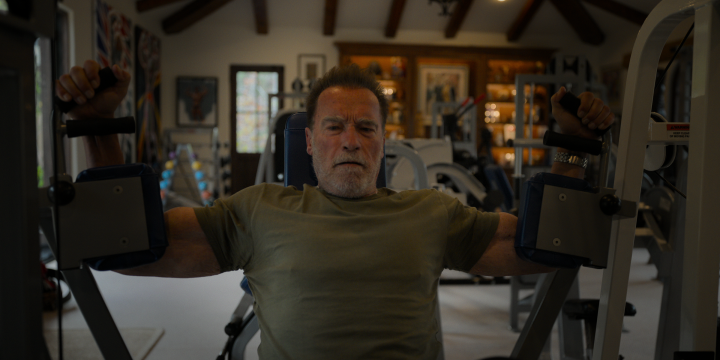
'Arnold', the new Netflix documentary on Schwarzenegger chronicles his journey from the Austrian countryside to the highest echelons of the American dream, but his earnest interviews let slip the story of an endless craving for validation that, in the end, left the star all alone.
In a nutshell
It’s undeniably entertaining to observe the 75-year-old Arnold Schwarzenegger in all his charming, untampered brutishness, resting his stogie on an ashtray made from the claw of some carnivorous animal. A lion? A bear? A dragon? Nothing would be a surprise. He speaks candidly about the distinctly masculine toxicity of his career — what it does to your ego to surpass your idols, especially in a space like bodybuilding; his body dysmorphia even after winning Mr Universe and Mr Olympia; and his childlike rivalries with contemporaries like Sylvester Stallone. Netflix benefits from punting Schwarzenegger right now, having just released FUBAR, a generic, probably entertaining father-daughter spy series he stars in, and he benefits from the opportunity to do damage control on some of the outrageous things he’s said over the years and from the ego-stroking (which unbelievably, he still craves).
The documentary splits the achievements of his extraordinary life into three parts. First, Athlete, is the most personal, delving into Schwarzenegger’s repressed childhood and early obsession with his body. It shows what drives a person to become a champion bodybuilder. Actor is the busiest and most entertaining segment — it’s what most viewers are coming for — a highlight reel of his long illustrious time in Hollywood, peppered with hyped montages and juicy anecdotes from famous interviewees. The final episode is about his political career, and it’s called American. The choice to call it that rather than what it should have been called, Politician, probably has less to do with maintaining the “A” alliteration in the episodic nomenclature than setting the tone of its cliched nationalistic rhetoric.
Schwarzenegger’s story is the classic tale of a small-town kid who makes his dreams come true in the big city, although he will tell you the dream is not enough: “F**** the dream, what are you going to do with the dream?! You’ve got to have the vision!” He fancies himself a guru, and his lengthy uninterrupted monologues of wisdom that top-and-tail each episode are equal parts motivational and unsubtly self-promotional.
Schwarzenegger speaks frequently about “The Schmäh”, a German word that he translates into American as the buzz-creating bullshit involved in selling whatever it is you’re selling. Arnold is covered in Schmäh. His bluntness is refreshing: “You have to sell everything. No matter what you do in life, you have to sell it.” But the Schmäh of the docuseries is still embarrassingly transparent. It feels as if once he started campaigning for Governor of California, he never quite stopped.
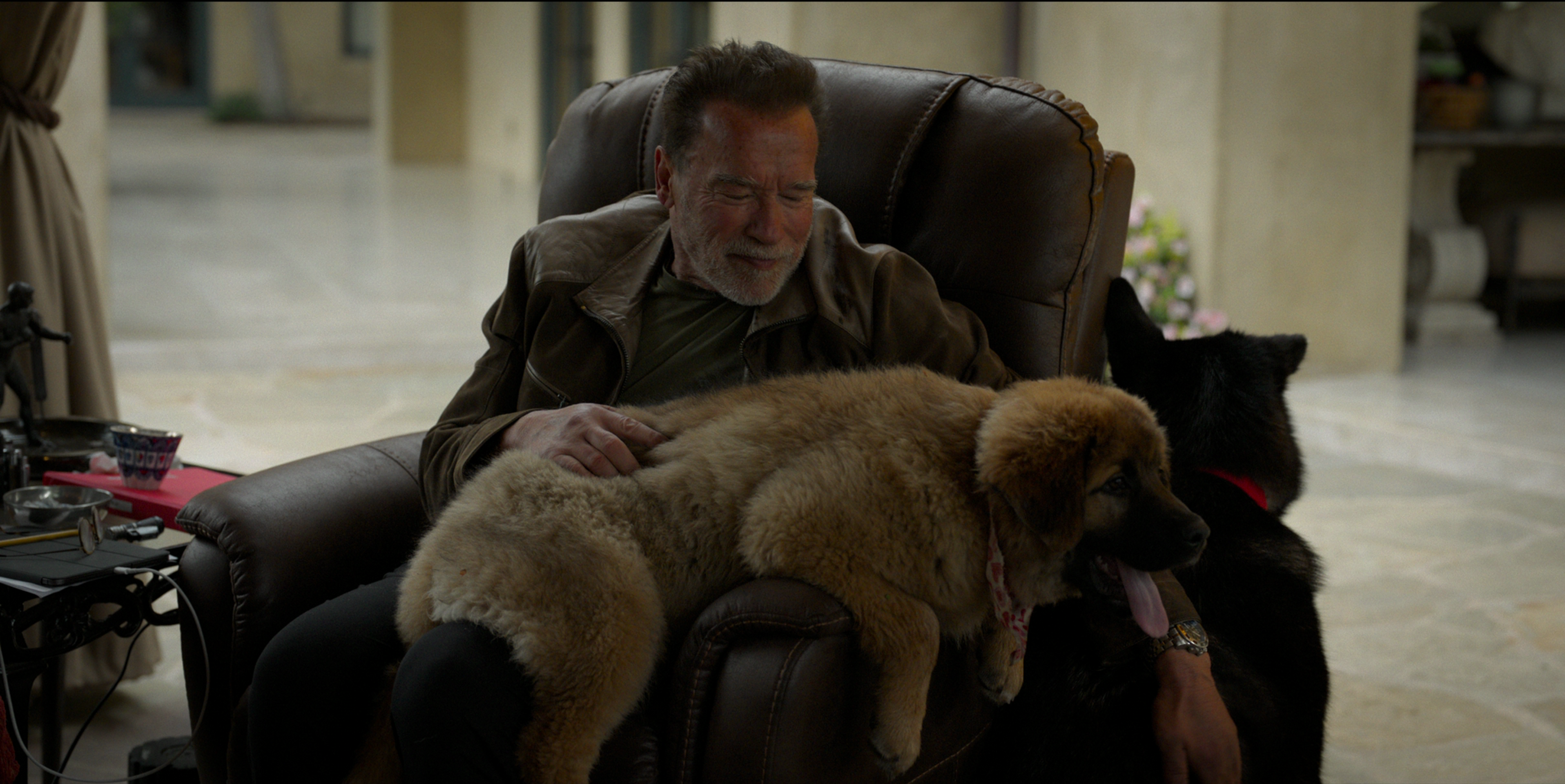
Arnold Schwarzenegger in his his home in Los Angeles with his dog. Image: Netflix / Supplied
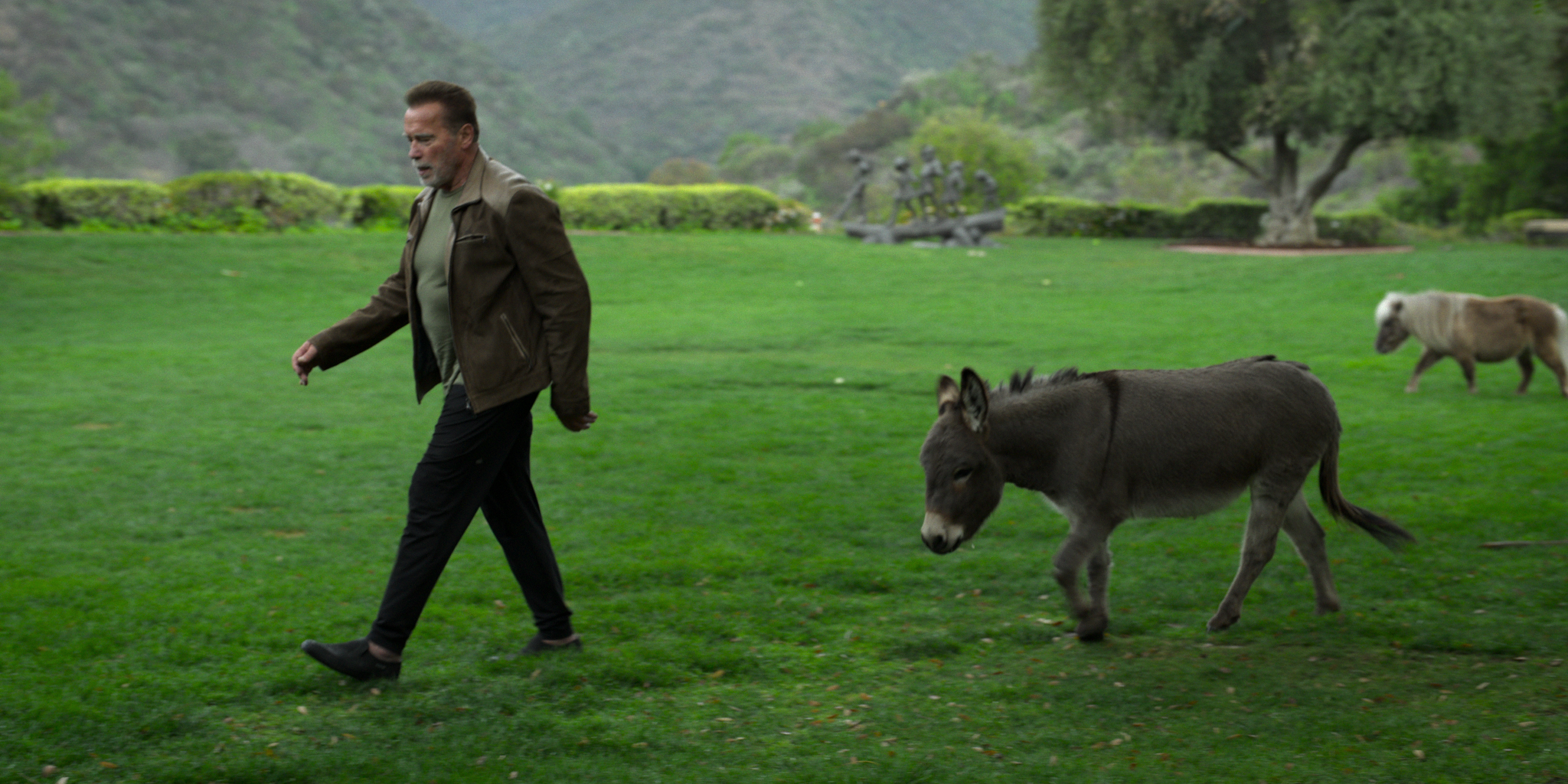
Arnold Schwarzenegger tends to his miniature horse named Whiskey and donkey named Lulu in the backyard of his Pacific Palisades house in Los Angeles. Image: Netflix / Supplied
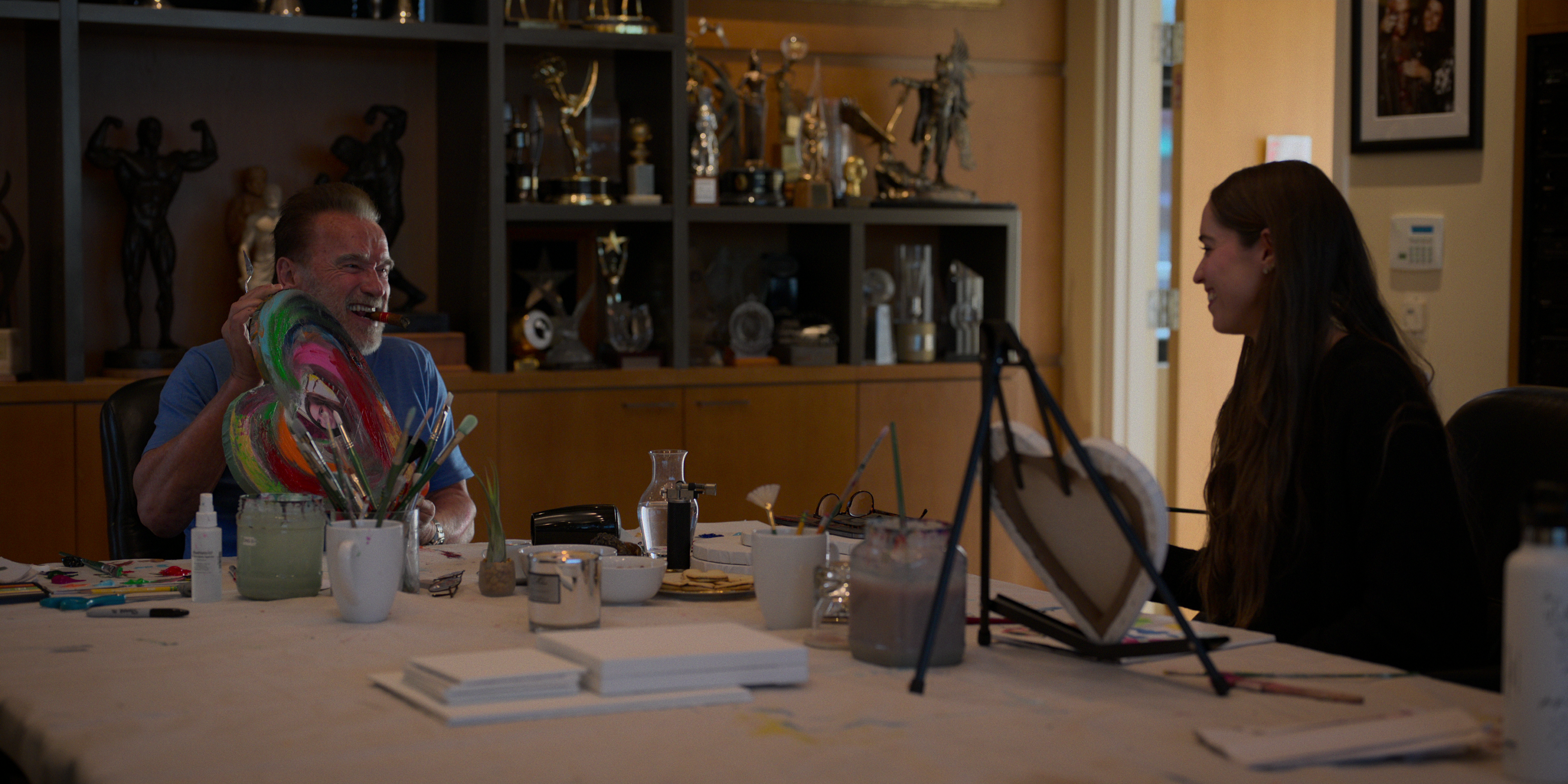
Arnold Schwarzenegger paints with his daughter Christina. Image: Netflix / Supplied
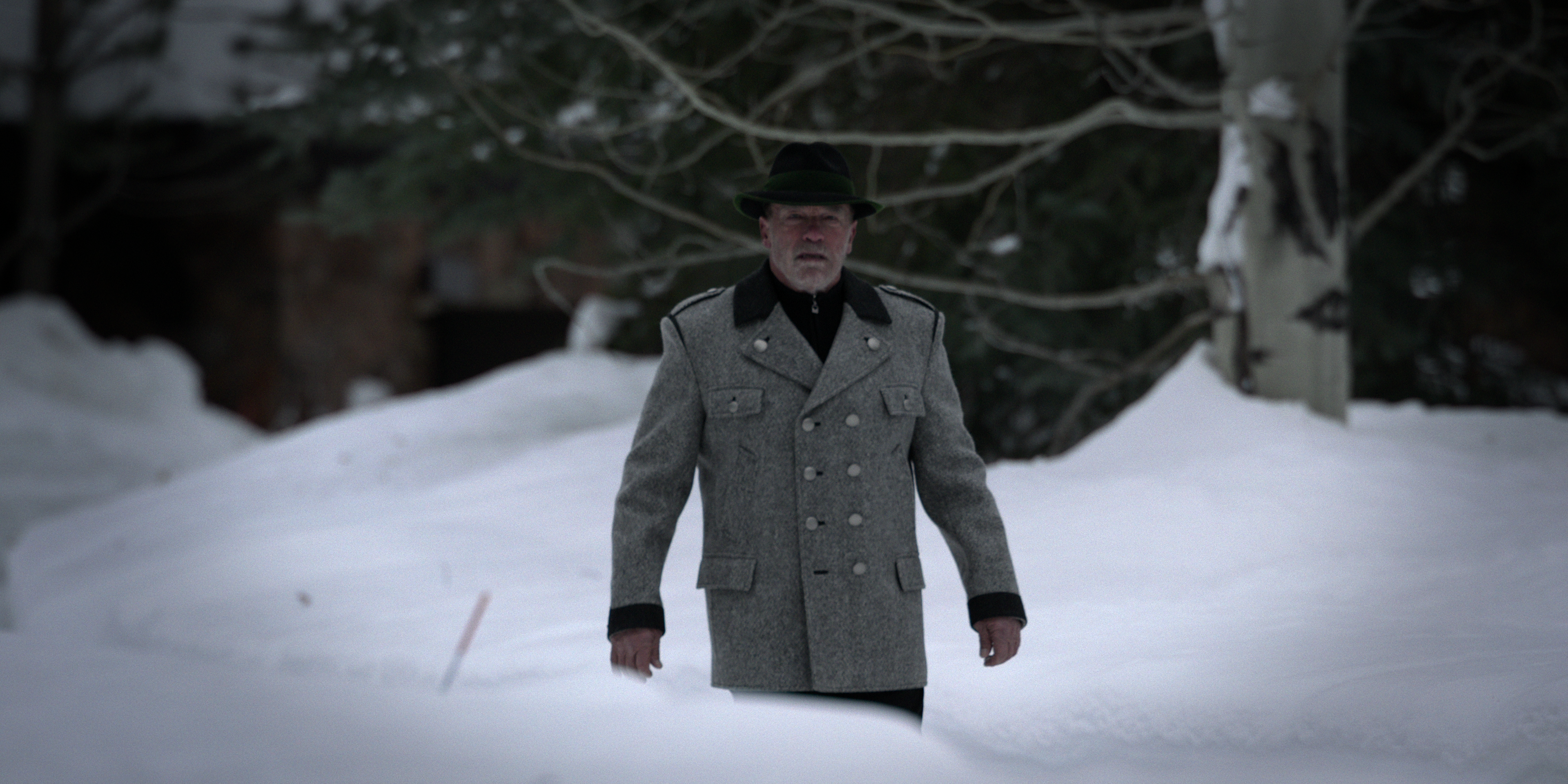
Arnold Schwarzenegger visits Thal, the Austrian village where he grew up. Image: Netflix / Supplied
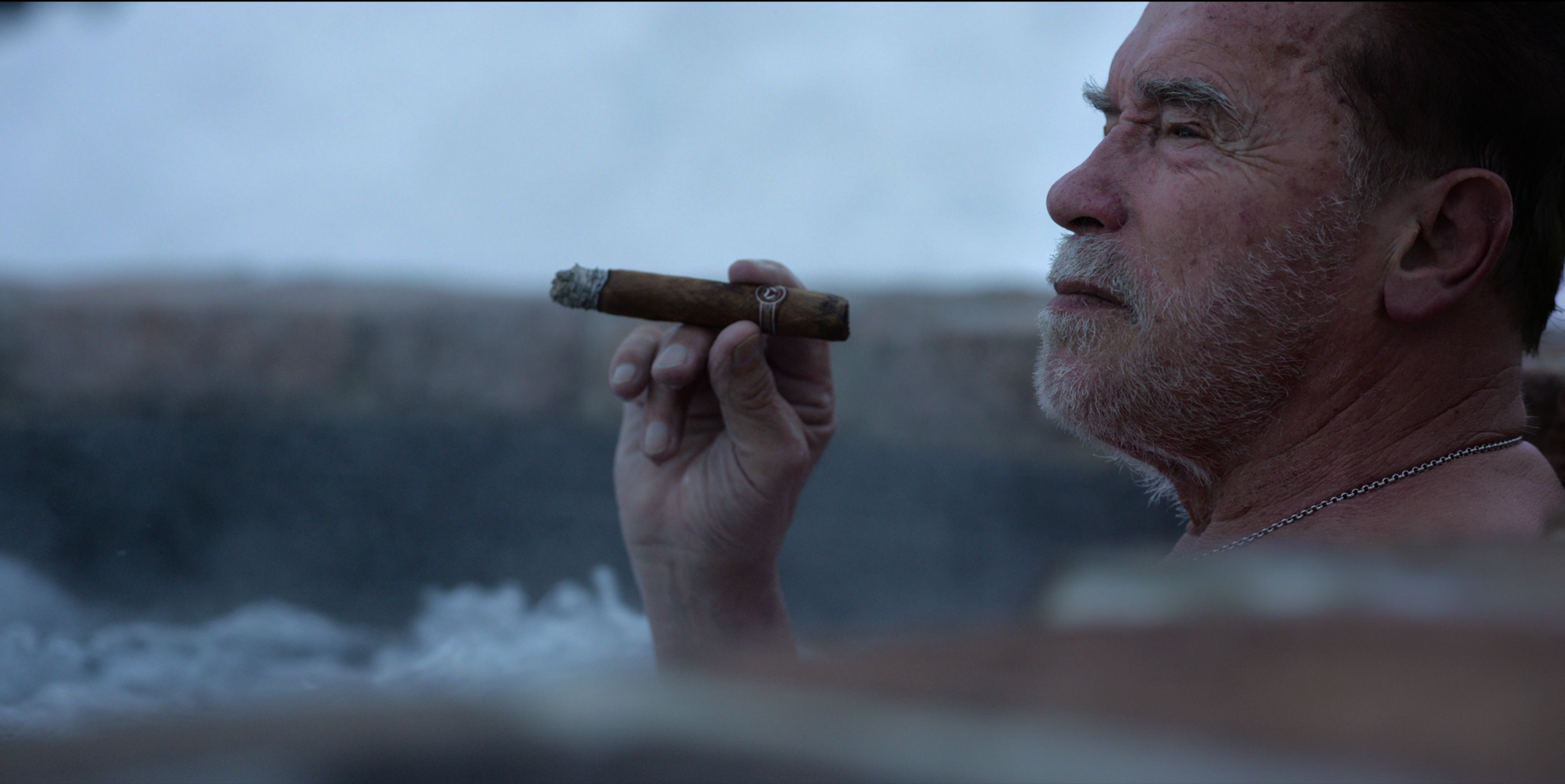
Arnold Schwarzenegger, age 75 in his outdoor jacuuzi at his home in Los Angeles. Image: Netflix / Supplied
Where to watch it
Arnold is available for streaming on Netflix.
What’s the vibe?
Each of the three parts of Arnold evokes comparisons to different kinds of documentaries.
The impressive and simultaneously masturbatory obsession with the body is so extreme that it is alien to most people. Many would have first become familiar with it through Pumping Iron, the 1977 documentary mentioned in Arnold that helped Schwarzenegger transition from bodybuilding to film.
The second segment of Arnold is the most dominant and exciting. There are many biographical documentaries about film stars to compare it too, but the important stylistic feature that will remind you more of some than others is the prominence of the subject as the main interviewee and narrator. Two recent films like this are Pamela, A Love Story and Still.
This involvement of the subject works better in those cases — as a highly sexualised female celebrity, Pamela Anderson was scarcely given a voice in her own story and Still shows the progression of Michael J Fox’s illness, which many people knew little about. Schwarzenegger never lacked a platform to talk about himself, so when he takes the reigns, it feels slightly less sincere.
The last segment of Arnold is not worth your time unless you are emotionally uninvested enough in Schwarzenegger’s ego-driven political career to get a kick out of how blatantly it has been spun in the documentary. It’s similar to other biopics of conservative politicians wherein focal points are cherry-picked to present the subject as a humanitarian and the controversies are given brief lip service and then glossed over.
Maybe the best example of a documentary like this is the three-part Discovery+ docuseries Unprecedented about Donald Trump and his family. It wouldn’t be even remotely fair to compare Schwarzenegger to the likes of Donald Trump, but unfortunately, the last segment of Arnold is just about comparable in its false objectivity to that of Unprecedented.
A closer look
Schwarzenegger has spent more of his life in front of cameras than possibly most people in history, so there’s little need for re-enacted scenes. There are a few re-enactments of his childhood in the Austrian village of Thal, but they’re surprisingly tasteful, in large part because they avoid showing characters’ faces and breaking the illusion.
Arnold doesn’t intend to reveal much about Schwarzenegger, but it does if you read between the lines. He speaks about his feelings confidently and with earnestness as if he was acknowledging them for the first time. The person he came to be was doubtlessly shaped by the fanaticism of his clean-freak mother and the workaholic culture of his abusive PTSD-riddled policeman father who pitted him and his older brother against one another, forcing them to do sit-ups to “earn their breakfast”, but Schwarzenegger gives these traumatic details little more than a glancing mention.
Arnold speaks about his feelings as if they were synonymous with his success. When he has the approval of the public or success at the box office, he is happy, when he doesn’t, he isn’t. Sometimes he says this straightforwardly, but often, it’s implied strongly by the show’s design as if it goes without saying. Over and over, his box-office earnings are displayed onscreen accompanied by excited music, a stylistic device that is tired almost as soon as it starts, rooted in such blatant materialism.
His happiness seems to have a 1:1 relationship with the validation of others, and the link between this unfillable pit and his failures in his personal life seems to escape him. He comfortably describes the moment of his election as Governor of California as more overwhelming than the birth of his child.
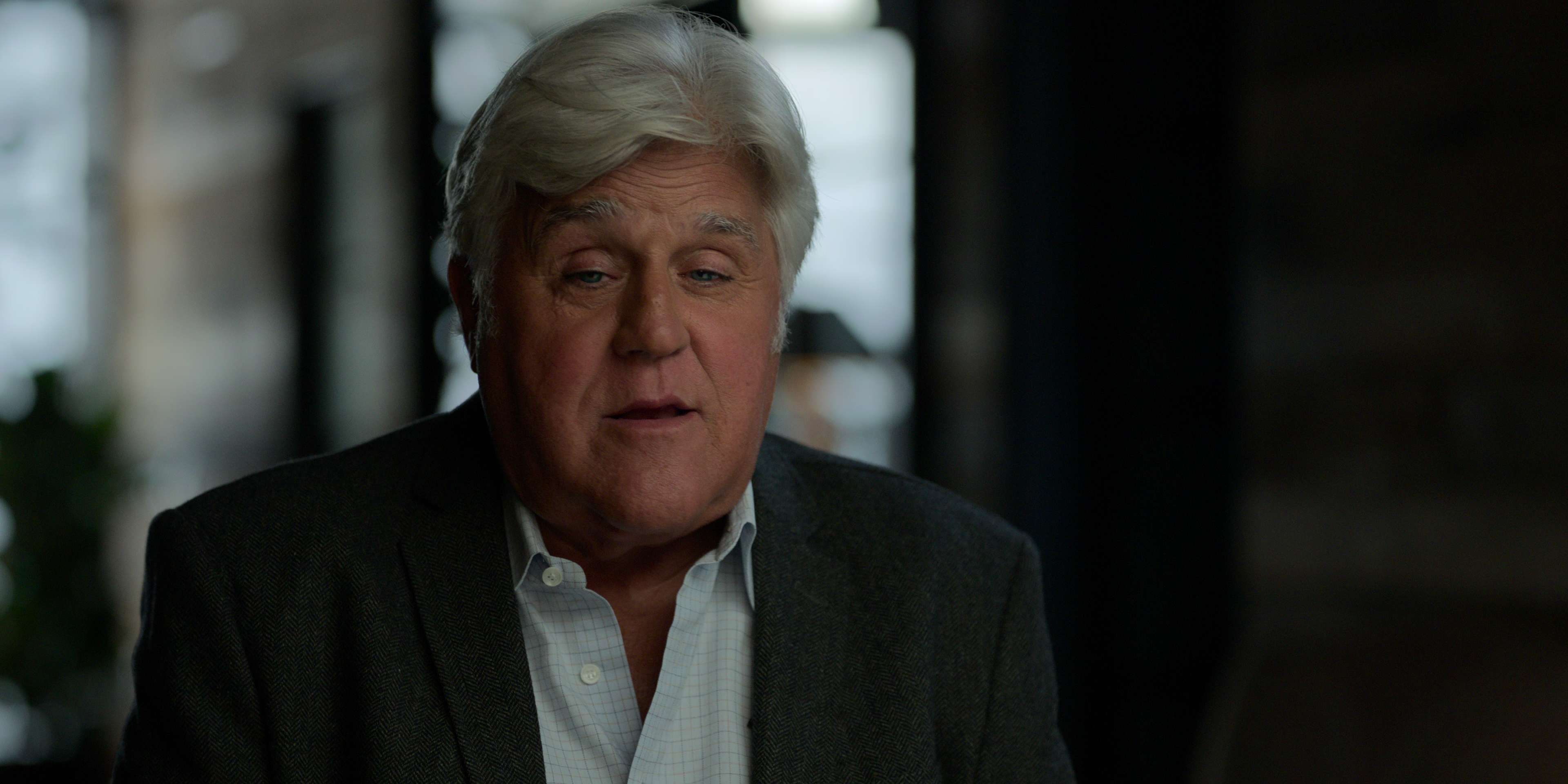
Jay Leno speaks about Arnold Schwarzenegger’s appearance on his show. Image: Netflix / Supplied
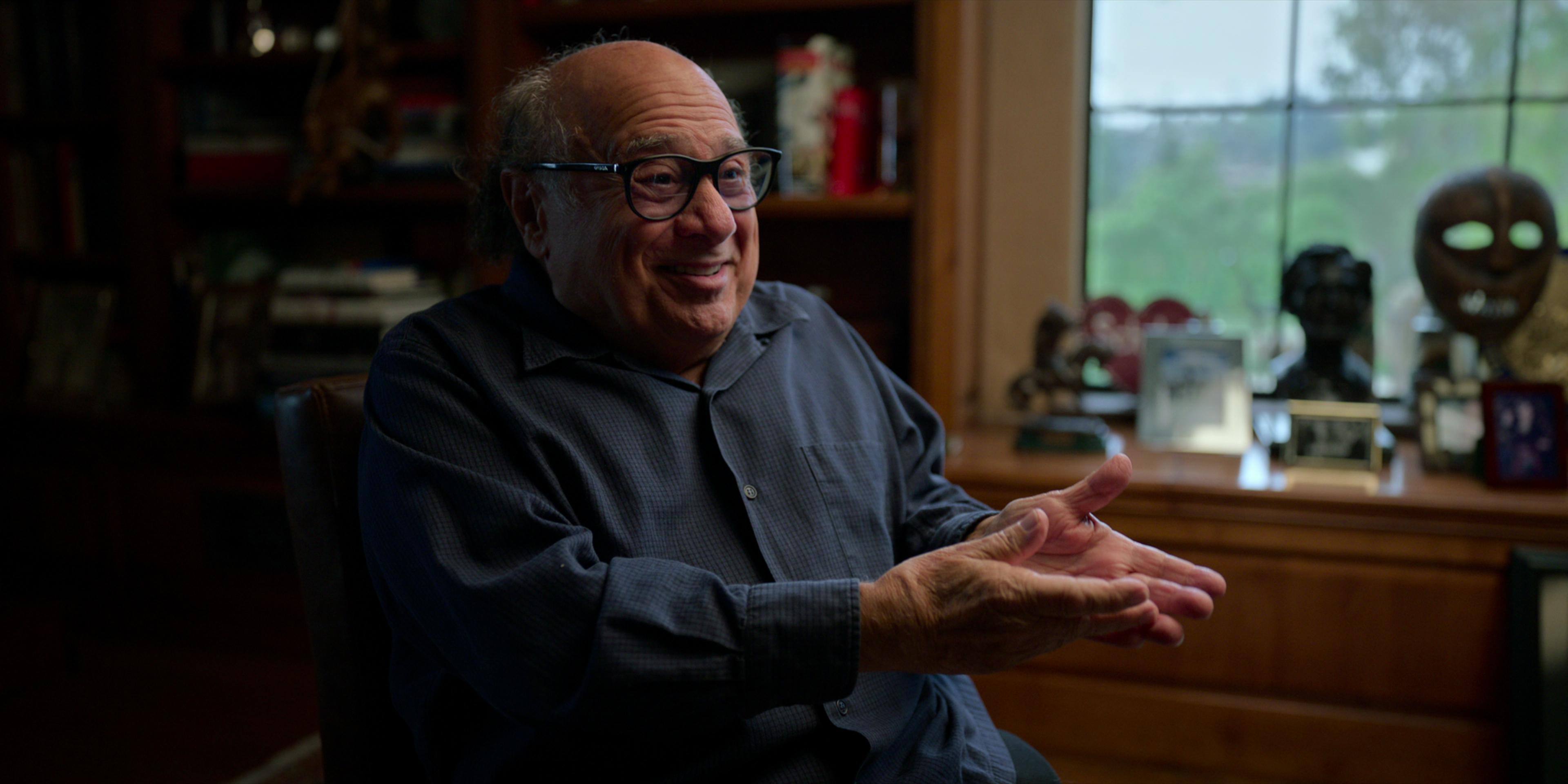
Danny DeVito speaks about being on set with Arnold Schwarzenegger. Image: Netflix / Supplied
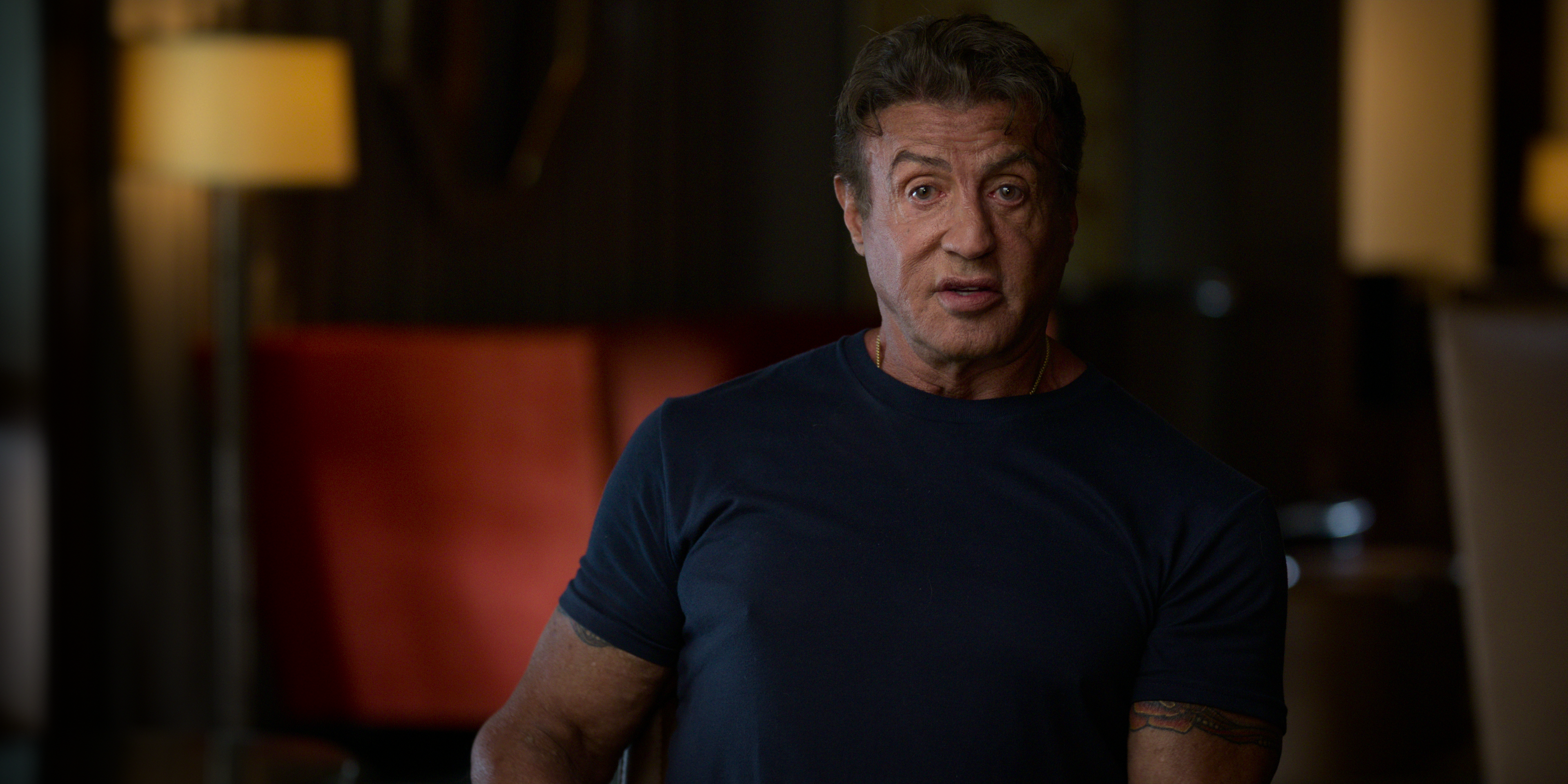
Sylvester Stallone speaks about his rivalry with Arnold Schwarzenegger. Image: Netflix / Supplied
Schwarzenegger often speaks about his unquenchable ambition. His preferred metaphor is that of Edmund Hillary, who, accompanied by his unmentioned sherpa, Tenzing Norgay, was the first to climb Mount Everest. After you reach the first peak you see another peak far away. “If you’re always hungry, you’re never really satisfied”, says Schwarzenegger. At first, this comes across as laudable, but eventually, it seems sad. Schwarzenegger is never satisfied with his achievements and admits that he prefers having a goal to strive towards so that he has less time to think about whether he’s depressed.
In Sylvester Stallone’s several appearances, he comments on the rivalry between the two of them, and while both are good sports about it, their differing motivations to have continued that rivalry says a lot about their character. Stallone resented that Schwarzenegger picked the fight with him in the first place and took offence at being compared to an actor he felt lacked the ability to … act. For Schwarzenegger it was just another arena in which to perform and be the best — if Stallone killed 15 people in his movie, Schwarzenegger wanted to kill 30.
Whether or not these are faults of Schwarzenegger, they’re not faults of the documentary itself — those only really bubble over in the third episode. Director Lesley Chilcott steers clear of controversiality throughout the series (for example, when we hear about Schwarzenegger’s touring South Africa in 1967 and living with a family in Johannesburg, there is no mention of apartheid) and this whitewashing becomes most obvious when we reach Schwarzenegger’s political ambitions.
During the third episode, James Cameron, says of Schwarzenegger, “Who knew he was spending all that time preparing for his biggest part?” The barely hidden implication of this supposedly joking quote is that Schwarzenegger’s political persona was acted or disingenuous. He may have been fairly innocuous as Republicans go, but he was a populist if ever there was one and his desire to be elected served his self-image more than any interest in politics. His own team admits that when he announced that he was running for office, “He had no staff, no plan, no people”. He himself admits “When I didn’t know something about the issues, I would just make jokes”. He may be less bigoted, but his election is almost as representative of the idiocy of celebrity culture as Trump’s.
Despite being the most famous bodybuilder of all time and one of the most recognisable movie stars in history, if you google Arnold Schwarzenegger, his title comes up as “Former Governor of California”. Arnold poses the governmental race as the apex of his life journey even though it’s the least interesting part. He loses your sympathy as soon as you see footage of him in that context, and it doesn’t help that he married a Kennedy, speaks disparagingly about the hippies of the 70s and looks up to Ronald Raegan.
At the height of his campaign, Schwarzenegger faced accusations of having groped women throughout his career. The Los Angeles Times reporter Carla Hall was briefly interviewed for the documentary, but never gets a chance to present the story — the only truth that matters is Schwarzenegger’s. This is also the case with his affair and extramarital son — he’s highly apologetic, but we never hear from his ex-wife or children, and somehow he is spun into the victim of the affair.
Admittedly, it is sad that despite his success, his ambitions and lust have landed him so alone as an old man, but the sadness is derived from irony, not bad luck or someone else’s doing.
Audiences are always hungry for intimate, holistic impressions of iconic public figures like Schwarzenegger. Arnold is intimate, and his fans will be thankful for that, but holistic? Nope. Not this time. Although the athlete drastically reinvented his career twice, the actor’s showmanship and the politician’s guile have probably always been a part of him, and those instincts hold him back from sharing the sincere, human vulnerability needed to make him relatable. DM
Arnold is available in South Africa on Netflix.
You can contact We’re Watching via [email protected]










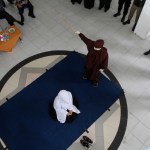









 Become an Insider
Become an Insider
I loved this as a doccie. I am not sure it could be made any other way – that is who he is. The brutal honesty I really enjoyed and if I was a fan before I am more of a fan now.
Trashing Arnold in the context of the documentary is naive. It’s not as if his flawed character and misdemeanours were unknown. He’s been pretty much an open book, so the feature is really just a pull-together of the highlights (and a couple of lowlights) of a rather remarkable life. And he’s interesting enough to watch in all his iterations. It is a very good production, as one would expect of ‘the world’s most famous film star’